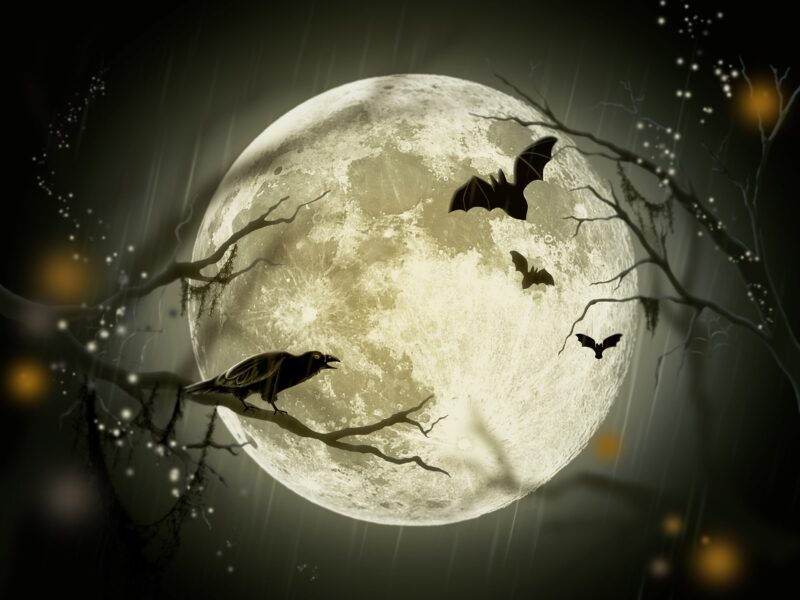What is Sarvapitru Amavasya?
Sarvapitru Amavasya, also known as Mahalaya Amavasya or Pitru Paksha Amavasya, is a significant Hindu observance dedicated to paying homage and offering prayers to one’s ancestors or departed souls. This day typically falls on the no-moon day (Amavasya) of the Ashwin month (usually in September or October) of the Hindu lunar calendar.
The Pitru Paksha, which is a 15-day period preceding Sarvapitru Amavasya, is considered a highly auspicious and sacred time for performing rituals for the departed souls. It is believed that during this period, the spirits of deceased ancestors come closer to the Earth plane, and prayers and offerings made during this time are particularly effective in seeking their blessings and ensuring their well-being in the afterlife.
On Sarvapitru Amavasya, families gather to offer “tarpan” (libations) in memory of their ancestors. This ritual involves the offering of food, water, and other items to honor and satisfy the spirits of one’s forefathers. It is believed that by performing these rituals, one can seek forgiveness for any past mistakes and ensure that the departed souls find peace and liberation.
People also visit holy rivers, particularly the Ganges (Ganga), to perform these rituals and offer prayers. Additionally, charitable acts, such as donating to the needy or feeding the poor, are considered meritorious on this day.
Sarvapitru Amavasya is an occasion for reflection, remembrance, and expressing gratitude to one’s ancestors. It is observed with devotion and reverence to ensure the well-being of departed loved ones in the journey beyond life.
Importance of Sarvapitru Amavasya
Sarvapitru Amavasya, also known as Mahalaya Amavasya or Pitru Paksha Amavasya, holds significant importance in Hinduism due to its association with ancestral worship and honoring one’s forefathers. Here are some key aspects of the importance of Sarvapitru Amavasya:
- Ancestral Remembrance: Sarvapitru Amavasya is a day dedicated to remembering and paying homage to one’s ancestors or departed souls. Hindus believe that the spirits of deceased family members are closer to the Earth during the Pitru Paksha period, making it an opportune time to offer prayers and express gratitude to them.
- Pitru Dosha Remediation: It is believed that neglecting one’s duties towards ancestors can result in “Pitru Dosha,” a form of ancestral curse or displeasure. Observing Sarvapitru Amavasya and performing rituals during Pitru Paksha are considered essential for appeasing the spirits of ancestors and seeking their blessings, which can help alleviate Pitru Dosha.
- Spiritual Cleansing: Sarvapitru Amavasya provides an opportunity for individuals to seek forgiveness for any mistakes or transgressions committed against their ancestors. It is believed that by offering prayers, performing rituals, and making offerings on this day, one can cleanse oneself spiritually and receive blessings from departed souls.
- Continuation of Family Lineage: Ancestral worship, including Sarvapitru Amavasya observance, is seen as a way to ensure the well-being of deceased family members in the afterlife. It is also considered a means to seek their blessings for the prosperity and continuity of the family lineage.
- Cultural and Religious Tradition: Sarvapitru Amavasya is deeply rooted in Hindu culture and tradition. It is observed by millions of Hindus worldwide as a way to uphold and pass down the customs and rituals associated with ancestral worship.
- Charitable Acts: On this day, many people engage in charitable activities, such as donating to the poor, feeding the hungry, or supporting religious causes. These acts of kindness and charity are believed to earn merit and offer spiritual benefits.
- Connection with Roots: Sarvapitru Amavasya serves as a reminder of one’s cultural and familial roots. It encourages individuals to maintain a connection with their heritage and uphold the values and practices passed down through generations.
Sarvapitru Amavasya holds immense importance for Hindus as a day dedicated to honoring and seeking blessings from their ancestors. It plays a vital role in maintaining family traditions, seeking spiritual cleansing, and ensuring the well-being of departed loved ones in the afterlife.
Is Sarvapitru Amavasya rituals are different from Pitrupaksha?
Sarvapitru Amavasya is a specific day within the broader period known as Pitru Paksha, and the rituals associated with Sarvapitru Amavasya are part of the overall observance of Pitru Paksha. So, while there are unique rituals and customs observed on Sarvapitru Amavasya, they are still considered part of the larger Pitru Paksha observance. Here’s a clarification:
Pitru Paksha (Pitri Paksha or Shradh): Pitru Paksha is a 15-day lunar period in the Hindu calendar that is dedicated to honoring and offering prayers to one’s ancestors or departed souls. It usually occurs in the Bhadrapada month (September to October) and culminates on Sarvapitru Amavasya, the no moon day.
Sarvapitru Amavasya: Sarvapitru Amavasya is the final day of Pitru Paksha, falling on the no moon day (amavasya). On this day, special rituals and offerings are made to pay homage to all departed souls, including one’s ancestors. It is considered a highly significant and auspicious day for performing these rituals.
The key distinction is that while Pitru Paksha spans 15 days and includes various rituals and offerings for ancestors, Sarvapitru Amavasya specifically focuses on making offerings to all departed souls, not just one’s immediate ancestors. It is a day when Hindus seek to appease and honor all souls that have departed.
Sarvapitru Amavasya rituals are a part of the broader Pitru Paksha observance, and they are specifically dedicated to acknowledging and honoring all departed souls. Both are significant in Hindu culture and are observed to seek blessings for the well-being of ancestors and departed loved ones in the afterlife


